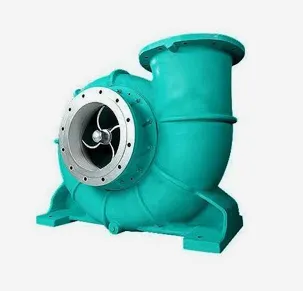Telugu
- Afrikaans
- Albanian
- Amharic
- Arabic
- Armenian
- Azerbaijani
- Basque
- Belarusian
- Bengali
- Bosnian
- Bulgarian
- Catalan
- Cebuano
- Corsican
- Croatian
- Czech
- Danish
- Dutch
- English
- Esperanto
- Estonian
- Finnish
- French
- Frisian
- Galician
- Georgian
- German
- Greek
- Gujarati
- Haitian Creole
- hausa
- hawaiian
- Hebrew
- Hindi
- Miao
- Hungarian
- Icelandic
- igbo
- Indonesian
- irish
- Italian
- Japanese
- Javanese
- Kannada
- kazakh
- Khmer
- Rwandese
- Korean
- Kurdish
- Kyrgyz
- Lao
- Latin
- Latvian
- Lithuanian
- Luxembourgish
- Macedonian
- Malgashi
- Malay
- Malayalam
- Maltese
- Maori
- Marathi
- Mongolian
- Myanmar
- Nepali
- Norwegian
- Norwegian
- Occitan
- Pashto
- Persian
- Polish
- Portuguese
- Punjabi
- Romanian
- Russian
- Samoan
- Scottish Gaelic
- Serbian
- Sesotho
- Shona
- Sindhi
- Sinhala
- Slovak
- Slovenian
- Somali
- Spanish
- Sundanese
- Swahili
- Swedish
- Tagalog
- Tajik
- Tamil
- Tatar
- Telugu
- Thai
- Turkish
- Turkmen
- Ukrainian
- Urdu
- Uighur
- Uzbek
- Vietnamese
- Welsh
- Bantu
- Yiddish
- Yoruba
- Zulu
Telephone: +86 13120555503
Email: frank@cypump.com
సెప్టెం . 10, 2024 22:25 Back to list
Efficient Water Pump for Chemical Pipeline Management
Efficient Water Pump for Chemical Pipelines Ensuring Optimal Performance and Safety
In industrial settings, particularly in the chemical sector, the efficient movement of fluids is crucial. Water pumps play a vital role in maintaining smooth operation across various processes, especially in the transport of chemicals through pipelines. The selection and implementation of an efficient water pump can significantly optimize system performance while ensuring safety and reliability.
Understanding the Role of Water Pumps
Water pumps are essential in various applications, including cooling systems, chemical transfer, and waste management. They help maintain the required flow rates and pressures, enabling the seamless transport of fluids. In the context of chemical pipelines, the water pump must not only be efficient but also compatible with the specific fluids being handled. This prevents chemical degradation of the pump materials and ensures the safety of the process.
Key Factors for Efficiency
To maximize the efficiency of water pumps in chemical pipelines, several factors must be considered
1. Pump Type Different types of pumps are suited for various applications. Centrifugal pumps are widely used for their ability to handle large volumes of fluid. However, positive displacement pumps may be preferred for their capability to handle viscous fluids and deliver consistent flow regardless of pressure variations.
2. Material Compatibility The materials used in the pump construction must be compatible with the chemicals being transported. Using pumps made from corrosion-resistant materials, such as stainless steel or special polymers, can prevent failures caused by chemical reactions and extend the pump's operational lifespan.
'efficient water pump for the chemical pipeline to ensure good ...'

3. Energy Efficiency Energy consumption is a critical consideration in pump selection. An efficient water pump can reduce operational costs significantly. Advanced pump designs that incorporate variable frequency drives (VFDs) allow for real-time adjustments in pump speed according to flow demands, thus minimizing energy waste.
4. System Design The overall design of the piping system can greatly influence pump efficiency. Factors such as pipe diameter, length, and the number of bends can create frictional losses. A well-designed system minimizes these losses, allowing the pump to operate efficiently and effectively.
5. Regular Maintenance Routine maintenance is essential for ensuring the continued efficiency of water pumps. Regular inspections, lubrication, and prompt repairs of any wear and tear can prevent unexpected failures and prolong the lifespan of the pumps.
Ensuring Safety
In the chemical industry, safety is paramount. An efficient water pump not only contributes to operational performance but also plays a vital role in maintaining a safe working environment. Pumps must be equipped with safety features such as pressure relief valves and leak detection systems to prevent hazardous incidents.
Furthermore, proper training for personnel operating these pumps and regular safety audits can help identify potential risks and mitigate them effectively.
Conclusion
In conclusion, the selection of an efficient water pump for chemical pipelines is a critical decision that impacts operational efficiency and safety. By considering factors like pump type, material compatibility, energy efficiency, system design, and maintenance, industries can enhance their processes while safeguarding their operations. Investing in high-quality, efficient water pumps not only streamlines workflow but also ensures a commitment to safety and sustainability in the chemical industry. With continuous advancements in pump technology, the future looks promising for achieving even greater efficiencies in fluid transport solutions.
-
ISG Series Vertical Pipeline Pump - Chi Yuan Pumps Co., LTD.|Advanced Hydraulic Design&Energy-Efficient Solutions
NewsJul.30,2025
-
ISG Series Vertical Pipeline Pump - Chi Yuan Pumps Co., LTD.
NewsJul.30,2025
-
ISG Series Vertical Pipeline Pump - Chi Yuan Pumps Co., LTD.|energy-efficient fluid handling&industrial durability
NewsJul.30,2025
-
ISG Series Vertical Pipeline Pump - Chi Yuan Pumps | Advanced Engineering&Industrial Efficiency
NewsJul.30,2025
-
ISG Series Pipeline Pump - Chi Yuan Pumps | High Efficiency, Energy Saving
NewsJul.30,2025
-
ISG Series Vertical Pipeline Pump-Chi Yuan Pumps|High Efficiency&Reliable Performance
NewsJul.29,2025










